 Figurative Language Lesson 1. Click on it to enlarge it or view the source file." />
Figurative Language Lesson 1. Click on it to enlarge it or view the source file." />Students are often required to identify figurative language techniques on standardized tests. Here are a series of figurative language activities to help students better understand and more reliably identify figurative language techniques. Also, you may be interested in these online figurative language practice tests.
Figurative Language Lesson 1Here is a PowerPoint slideshow lesson on figurative language. It teaches students about simile, metaphor, personification, hyperbole, and understatement. It also includes ten practice problems after the lesson. Use this to teach a lesson on figurative language and provide some practice.
 Figurative Language Lesson 1. Click on it to enlarge it or view the source file." />
Figurative Language Lesson 1. Click on it to enlarge it or view the source file." />
 Figurative Language Lesson 1." />
Figurative Language Lesson 1." />
 Figurative Language Lesson 1." />
Figurative Language Lesson 1." />
Here is another version of my figurative language lesson. This PowerPoint lesson includes definitions and examples of figurative language terms. It also includes tips for identifying these techniques. There is also a ten question practice activity at the end of the lesson.
 Figurative Language Lesson 2. Click on it to enlarge it or view the source file." />
Figurative Language Lesson 2. Click on it to enlarge it or view the source file." />
 Figurative Language Lesson 2." />
Figurative Language Lesson 2." />
 Figurative Language Lesson 2." />
Figurative Language Lesson 2." />
Here is a one slide presentation with a series of questions that one can ask. Asking these questions will lead students into identifying the correct figurative language technique. This is a great way to begin a class where you review and practice figurative language techniques.
 Figurative Language Lesson. Click on it to enlarge it or view the source file." />
Figurative Language Lesson. Click on it to enlarge it or view the source file." />
 Figurative Language Lesson." />
Figurative Language Lesson." />
 Figurative Language Lesson." />
Figurative Language Lesson." />
 Figurative Language Lesson. Press this button and you will leave this site and watch one of my videos on YouTube." />
Figurative Language Lesson. Press this button and you will leave this site and watch one of my videos on YouTube." />
Looking for a fun, figurative language review game? Check out Trashketball! Students answer questions about figurative language. Then they shoot the quiz paper from correct answers into the trash can for extra credit. A fun and exciting way to review!



This is a fun practice activity to help students review figurative language. It features 10 more practice problems. Students answer the questions in groups. They shoot their correct responses into the trash for extra credit. My students love this game.



Trashketball is a review game where students work in groups to answer review questions. They get to shoot their correct answers into the trash can. What a fun and exciting way to review! Here are ten more figurative language practice problems. These should give your students a mental workout.



Here's a fun, hands-on activity to help your kinesthetic and visual learners become more comfortable with figurative language. This activity takes about ten or fifteen minutes to complete. Students cut out the figurative language examples and match them to the terms.
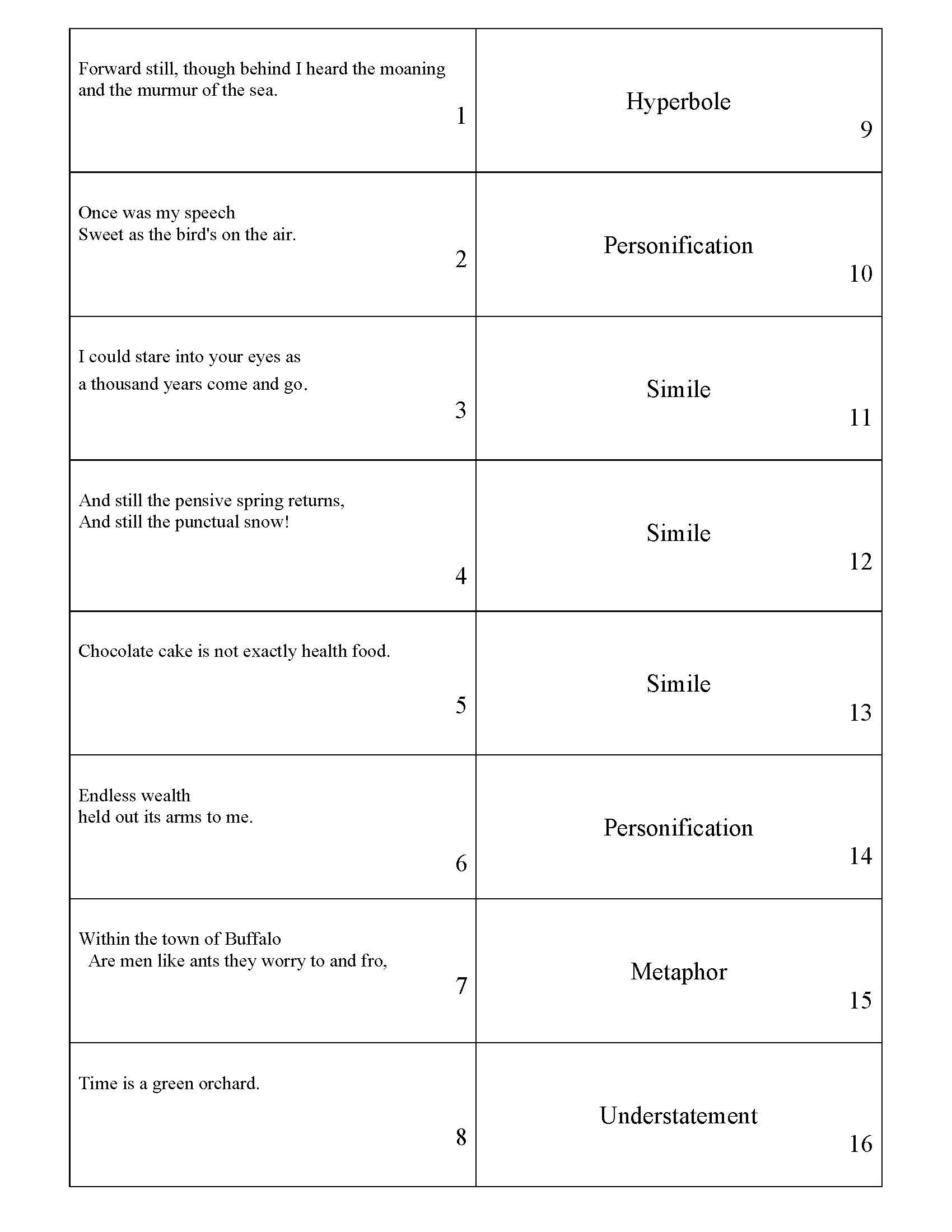



Are you looking for a fun way for your students to review figurative language techniques and become better acquainted with poetry? Check this figurative language project out. Students make a collection of poems demonstrating simile, metaphor, hyperbole, personification, and idiom.
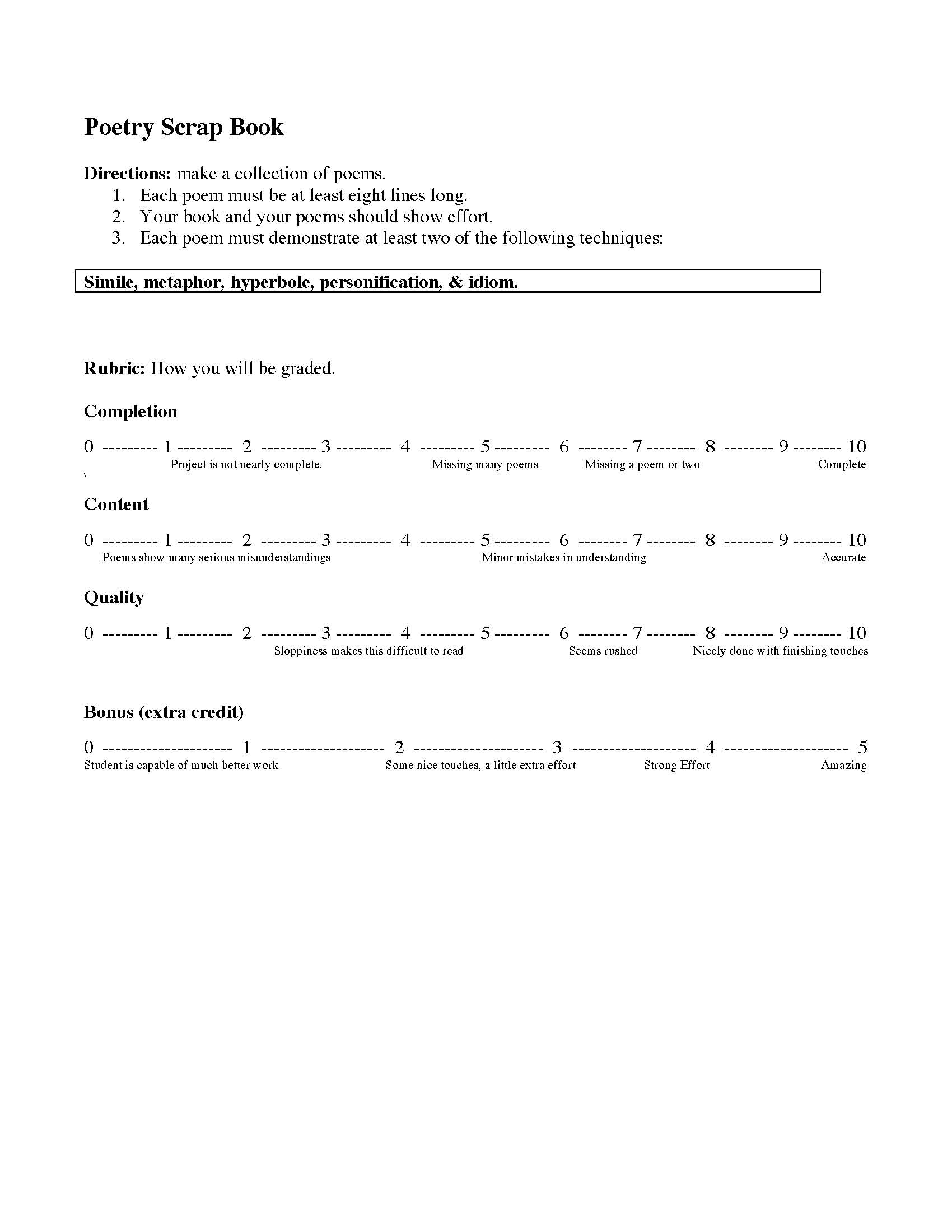



Looking for a way to assess your students' understanding of figurative language? Check out this figurative language quiz. It features 10 multiple-choice questions and was designed to be easy to grade.
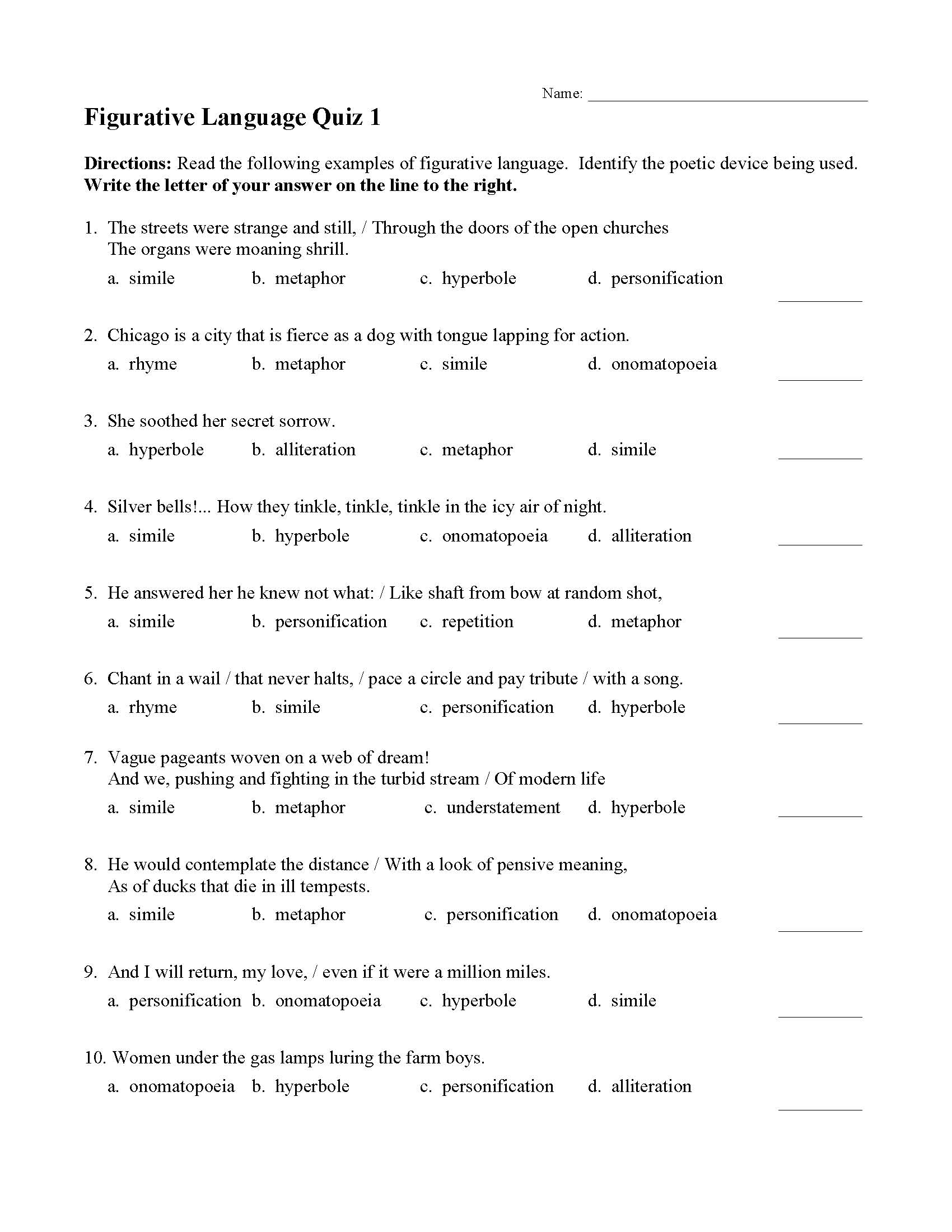



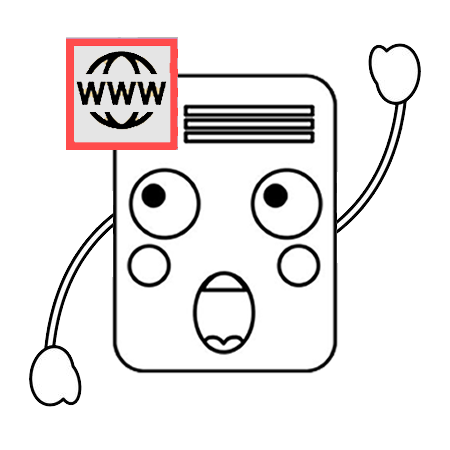

Here's another figurative language quiz. Use this to quickly evaluate students' understand of figurative language. This quiz has ten multiple choice questions and is easy to grade.
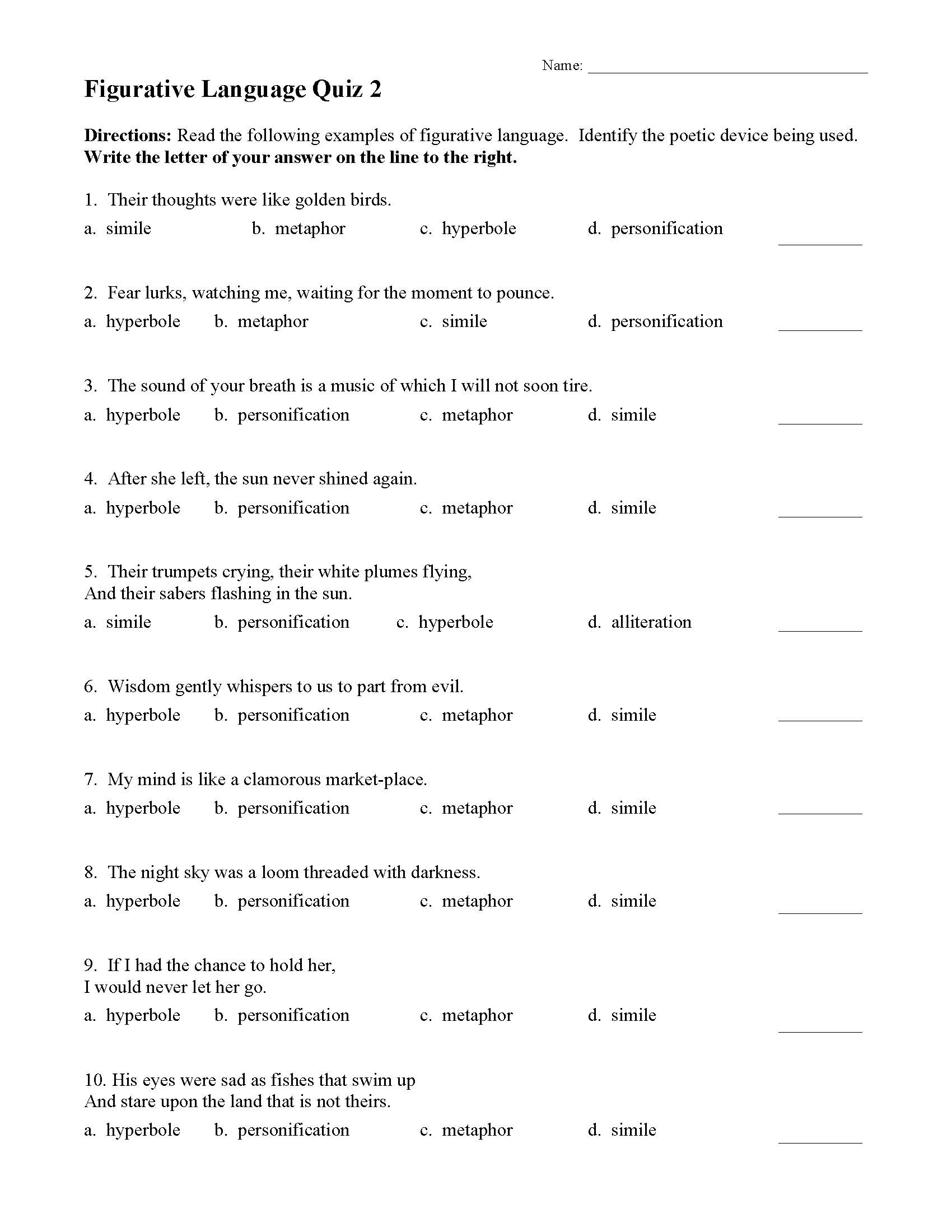





Here is a 40 question figurative language test. This test has a lot of different question types. Match terms to definitions. Identify examples of figurative language. Read two poems and answers questions. Check it out now.
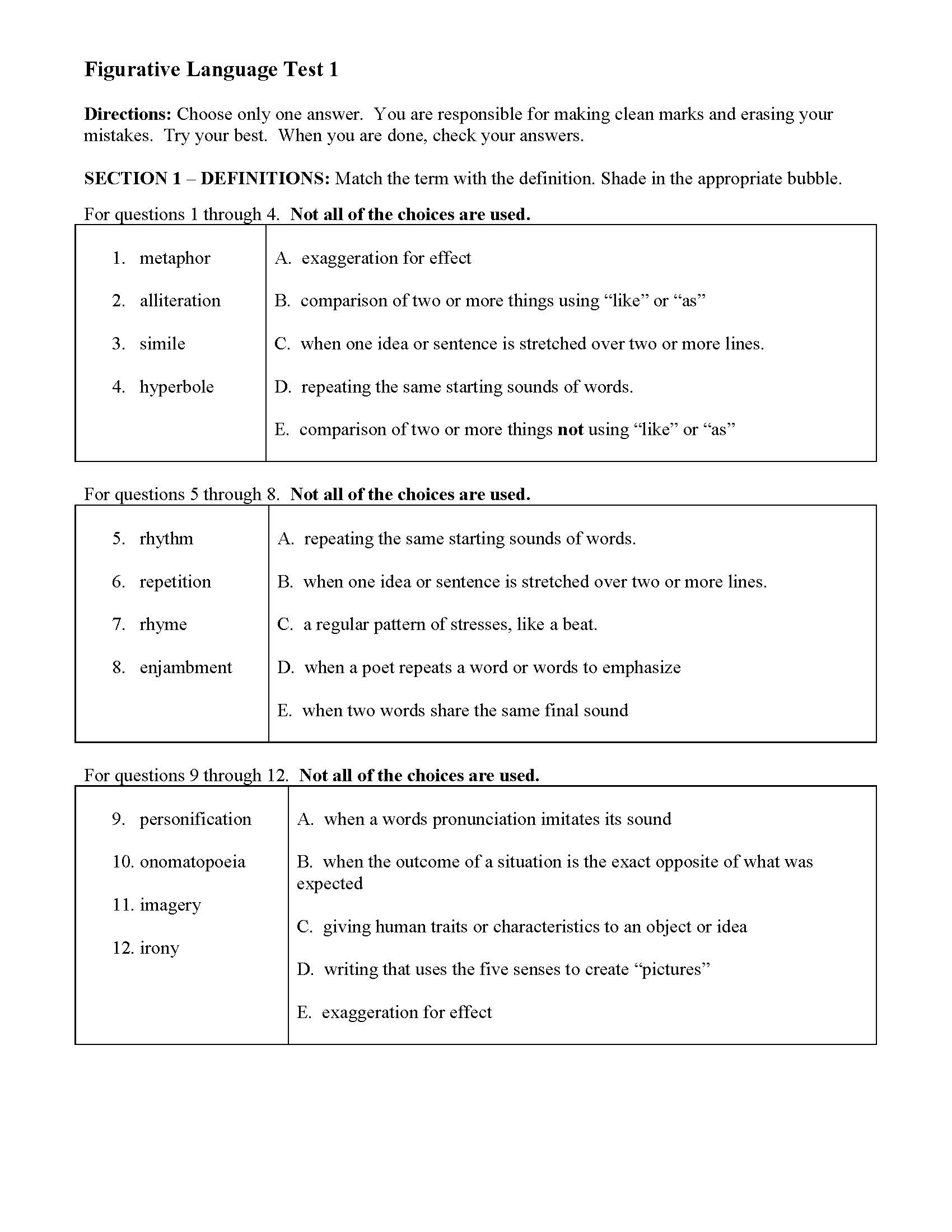

 Test if you want to make edits to the file." />
Test if you want to make edits to the file." />
 Test if you want to print or send the files as-is." />
Test if you want to print or send the files as-is." />


Here is another 40 question figurative language test. In the first section, students match terms to definitions. Then they identify figurative language techniques. Last, compare and contrast two poems. This is a great way to assess students at the end of a unit on figurative language.
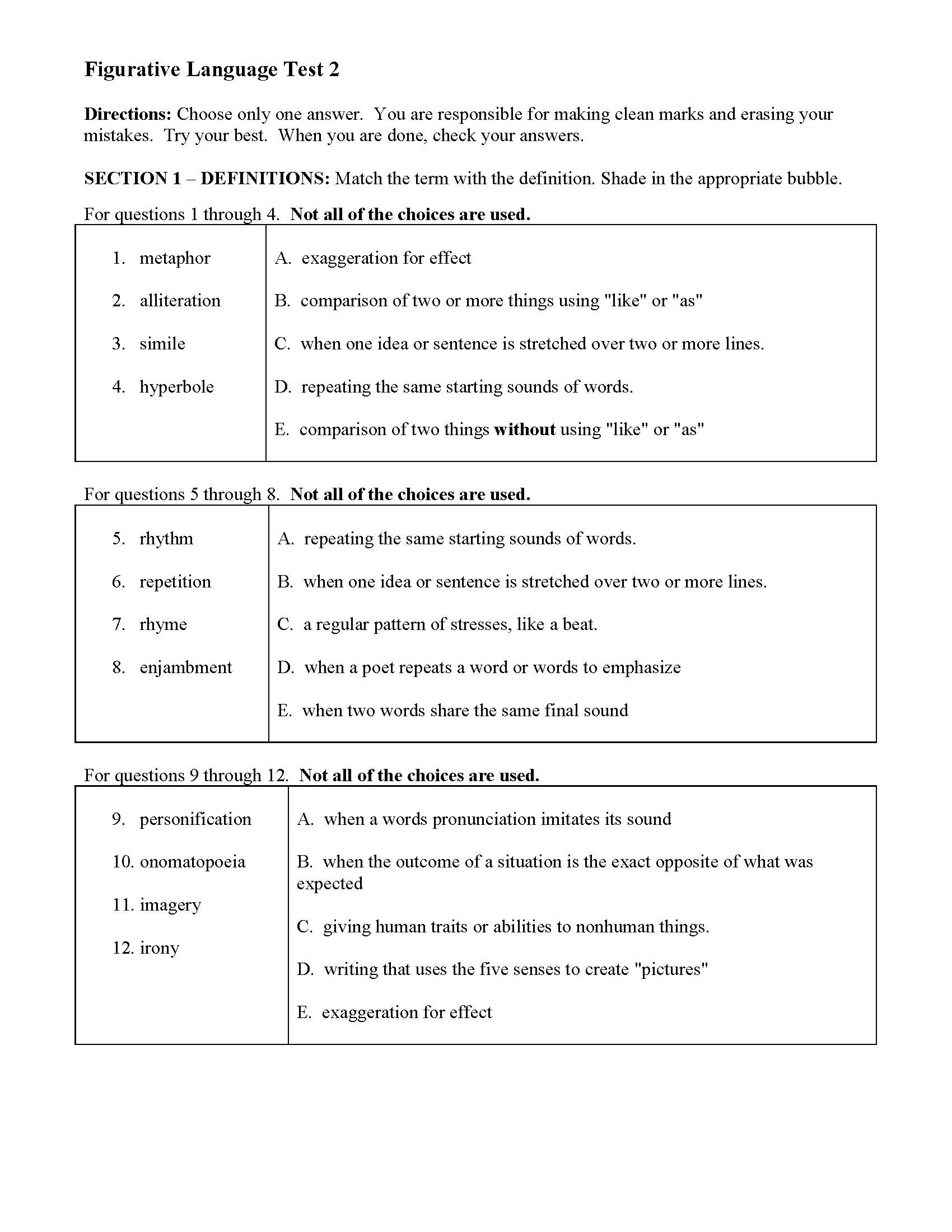





Here is a high-interest figurative language video game that I wrote. Students play as the mythical Orpheus in his quest to retrieve his beloved Eurydice from Hades. They will answer literally hundreds of figurative language questions along the way. This is a fun and exciting way to review figurative language techniques and students really get into it.
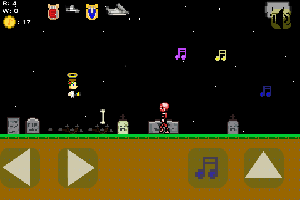
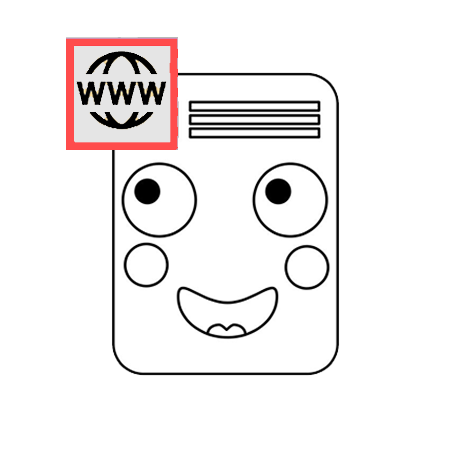
R.4 - Interpret words and phrases as they are used in a text, including determining technical, connotative, and figurative meanings, and analyze how specific word choices shape meaning or tone.
RL.2.4 - Describe how words and phrases (e.g., regular beats, alliteration, rhymes, repeated lines) supply rhythm and meaning in a story, poem, or song.
RL.3.4 - Determine the meaning of words and phrases as they are used in a text, distinguishing literal from nonliteral language.
RL.4.4 - Determine the meaning of words and phrases as they are used in a text, including those that allude to significant characters found in mythology (e.g., Herculean).
RL.5.4 - Determine the meaning of words and phrases as they are used in a text, including figurative language such as metaphors and similes.
RL.6.4 - Determine the meaning of words and phrases as they are used in a text, including figurative and connotative meanings; analyze the impact of a specific word choice on meaning and tone.
RL.7.4 - Determine the meaning of words and phrases as they are used in a text, including figurative and connotative meanings; analyze the impact of rhymes and other repetitions of sounds (e.g., alliteration) on a specific verse or stanza of a poem or section of a story or drama.
RL.8.4 - Determine the meaning of words and phrases as they are used in a text, including figurative and connotative meanings; analyze the impact of specific word choices on meaning and tone, including analogies or allusions to other texts.
RL.9-10.4 - Determine the meaning of words and phrases as they are used in the text, including figurative and connotative meanings; analyze the cumulative impact of specific word choices on meaning and tone (e.g., how the language evokes a sense of time and place; how it sets a formal or informal tone).
RL.11-12.4 - Determine the meaning of words and phrases as they are used in the text, including figurative and connotative meanings; analyze the impact of specific word choices on meaning and tone, including words with multiple meanings or language that is particularly fresh, engaging, or beautiful. (Include Shakespeare as well as other authors.)
L.5 - Demonstrate understanding of figurative language, word relationships, and nuances in word meanings.
L.3.5a - Distinguish the literal and nonliteral meanings of words and phrases in context (e.g., take steps).
L.4.5 - Demonstrate understanding of figurative language, word relationships, and nuances in word meanings.
L.4.5a - Explain the meaning of simple similes and metaphors (e.g., as pretty as a picture) in context.
L.5.5a - Interpret figurative language, including similes and metaphors, in context.
L.6.5 - Demonstrate understanding of figurative language, word relationships, and nuances in word meanings.
L.6.5a - Interpret figures of speech (e.g., personification) in context.
L.7.5 - Demonstrate understanding of figurative language, word relationships, and nuances in word meanings.
L.7.5a - Interpret figures of speech (e.g., literary, biblical, and mythological allusions) in context.
L.8.5 - Demonstrate understanding of figurative language, word relationships, and nuances in word meanings.
L.8.5a - Interpret figures of speech (e.g. verbal irony, puns) in context.
L.9-10.5 - Demonstrate understanding of figurative language, word relationships, and nuances in word meanings.
L.11-12.5 - Demonstrate understanding of figurative language, word relationships, and nuances in word meanings.
L.11-12.5a - Interpret figures of speech (e.g., hyperbole, paradox) in context and analyze their role in the text.